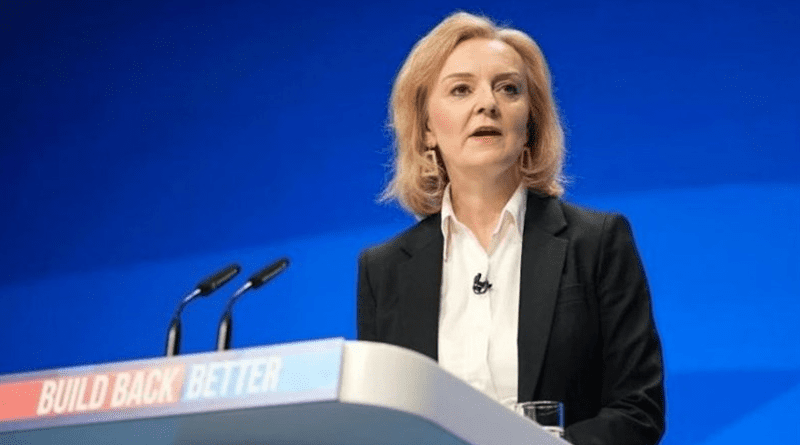Britain’s Political Challenge Post Liz Truss – OpEd
By Observer Research Foundation
By Harsh V. Pant
That the British Conservative Party is facing an abyss would be an understatement. Things are so bad that a disgraced former prime minister like Boris Johnson once again seems to be in the running for the leader of the party and therefore for the nation’s premiership.
Liz Truss had come to office promising major economic initiatives but had to resign within 45 days, claiming she “cannot deliver the mandate on which I was elected,” and thus becoming the shortest serving British prime minister.
But even within those 45 days, her policies unleashed economic turmoil and political instability that remains unprecedented in British political history.
The Tories are rudderless, the economy is in shambles, and the country is facing a governance void unlike any in its history.
Not all of it is Truss’ fault but for better or for worse, she will forever be the face of this British turbulence.
Truss was a leader in a hurry as her now-abandoned September mini-budget started the turmoil, sending financial markets into a tailspin.
In this quite radical policy document, taxes were slashed for the higher paid and were funded by borrowing, leading to immediate inflationary trends in the economy already under stress. As the financial markets reeled, the pound plummeted, forcing the Bank of England to bail out pensions funds.
When the pressure became intense she had to sack her close ally and chancellor, Kwasi Kwarteng, and appointed Jeremy Hunt in an attempt to calm the markets.
A day later, her home secretary, Suella Braverman, resigned and a chaotic night with accusations of bullying during a vote in the House of Commons followed, which ultimately sealed her fate.
The Bank of England has warned that interest rates may need to rise by more than previously expected as inflation is increasing at almost its fastest rate in 40 years. US President Joe Biden also called Liz Truss’s original economic policies “a mistake” and said the economic turmoil that followed the government’s mini-budget had been “predictable.”
Even the head of the UK’s supermarket chain, Tesco, openly came out and said that the Conservatives “did not have a growth plan” and is warning of the challenges as a result of rising cost of living.
Not surprisingly, the opposition parties are demanding an immediate general election with Labour leader Sir Keir Starmer asserting that the country “cannot have another experiment at the top of the Tory party.”
The new leader of the Conservative Party and the new prime minister are to be announced on October 28 after the second Conservative Party leadership election this year. This will be the fifth leader of the Tories and prime minister in six years, underlining a deeper malaise afflicting the Conservatives than outward policy choices.
In some fundamental ways, this goes all the way back to Brexit which for many Tories was the crowning glory of their ideological convictions. But now as the reality is coming to bite, there is a realization that managing British economic fortunes outside the European Union is more daunting than many had envisioned.
Such is the state of affairs with the Tories that Boris Johnson, who was forced to resign as Conservative leader in July following a string of scandals, is now back in the reckoning.
Rishi Sunak and Penny Mordaunt are the other likely contenders with Sunak emerging as the bookies’ favourite at this stage. Sunak and Truss had faced off each other earlier as well and Sunak had the overwhelming support of the Conservative MPs.
His economic policy was also more sound and he had made it clear that Truss’ plans will put the UK’s public finances in “serious jeopardy” and fuel inflation, leading to even higher prices in the shops. He has been proven correct by subsequent events.
But there is no end in sight for the troubles of the Conservatives. Even with a new leader, the Tory hold over power is likely to diminish and the Labour Party is waiting in the wings to take over.
The Conservative Party will have to first figure out what it stands for in a post Brexit British political landscape. Until it resolves this dilemma, a leadership change won’t matter.
And this political uncertainty is also creating problems for Britain on the global stage where it has traditionally punched above its weight.
Today, Britain looks like a pale shadow of its past glory. The EU is no longer interested while the rest of the world is taking its time to adapt to the version of Britain devoid of its European connection.
With an economy in shambles, it will be a difficult ride for Britain to get its Indo-Pacific tilt right. And the trade deal with India faces a challenging road ahead as well.
It is now important for Britain to get its domestic political balance right if it would like to play a constructive role globally.
This commentary originally appeared in Dhaka Tribune.

